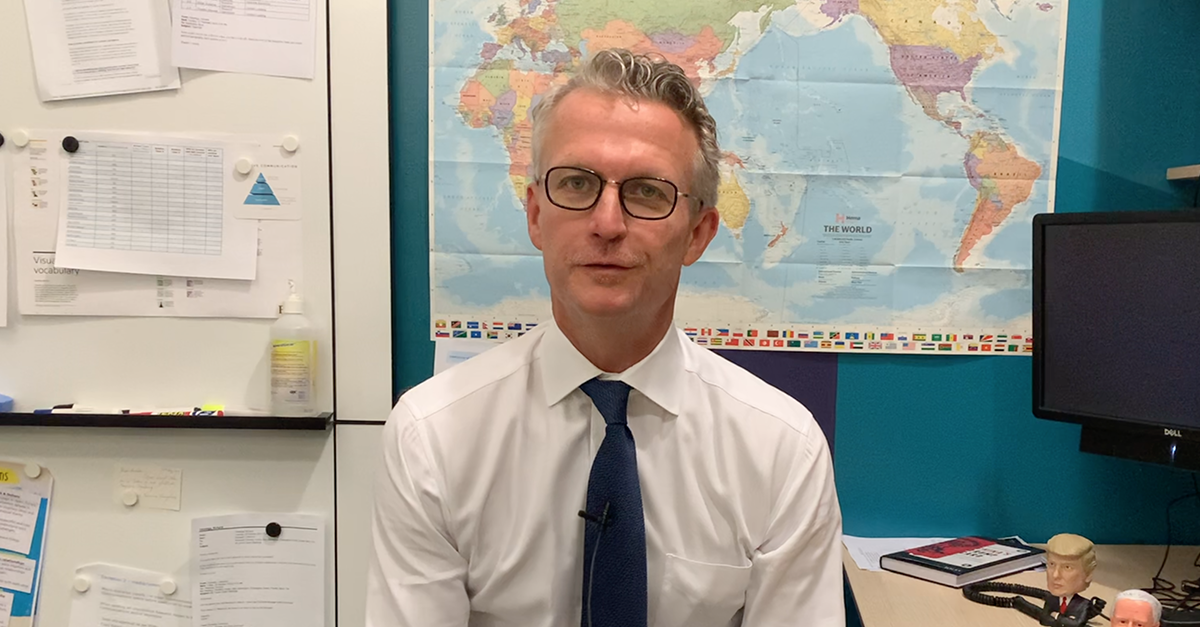US ELECTION
Yetsenga: this is the US now

Counting in the US Election continues, with all eyes fixed firmly on the world’s largest economy for any signs of a result. At this stage, it appears Democratic challenger Joe Biden may get across the line, but nothing is yet certain.
For me, there are three immediate takeaways from the vote so far. One is the importance of a smooth transfer of power, should the incumbent indeed be ousted.
There have already been reports of legal challenges to some of the ongoing counting. What the situation requires is a sense the system is working effectively and the inauguration will go ahead as intended.
The second is the polls were wrong. Again. If you're having a bad day, consider you could be a pollster in the US, having spent four years telling people you fixed things after the errors of 2016. They hadn’t.
What is now clear is the 2016 vote in the US wasn't an accident. It's the way the US people view the world. We need to accept that this is the US, as of today – and it is divided.
The US is not the only country that's divided, but it's the world's largest economy. This vote, and its fallout, will have lasting geopolitical and economic implications around the globe.
Ongoing inequality looms large. Already exacerbated by the COVID-19 pandemic, inequality is something all economies - particularly Western ones - need to confront.
The final theme is the future. What do the next couple of years look like under a Biden presidency? The candidate spoke of increasing corporate taxes and unwinding personal income tax cuts, going strongly on climate and effectively mirroring current US President Donald Trump on China.
In large part, the last one is the only thing we can be really confident about. Biden will clearly attempt to address climate and try to alter the tax mix, particularly around high-wealth individuals and companies.
But given the fact we haven't seen a blue wave, it looks as if the US will have a Democratic President and a mix of power in Congress. Those elements make the policy program difficult.
The impacts of COVID-19 pandemic are receding and there is optimism for the economic recovery. But it’s hard to see a silver lining around geopolitics. Unfortunately, this election result only reinforces that.
Richard Yetsenga is Chief Economist at ANZ
This publication is published by Australia and New Zealand Banking Group Limited ABN 11 005 357 522 (“ANZBGL”) in Australia. This publication is intended as thought-leadership material. It is not published with the intention of providing any direct or indirect recommendations relating to any financial product, asset class or trading strategy. The information in this publication is not intended to influence any person to make a decision in relation to a financial product or class of financial products. It is general in nature and does not take account of the circumstances of any individual or class of individuals. Nothing in this publication constitutes a recommendation, solicitation or offer by ANZBGL or its branches or subsidiaries (collectively “ANZ”) to you to acquire a product or service, or an offer by ANZ to provide you with other products or services. All information contained in this publication is based on information available at the time of publication. While this publication has been prepared in good faith, no representation, warranty, assurance or undertaking is or will be made, and no responsibility or liability is or will be accepted by ANZ in relation to the accuracy or completeness of this publication or the use of information contained in this publication. ANZ does not provide any financial, investment, legal or taxation advice in connection with this publication.




